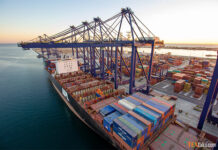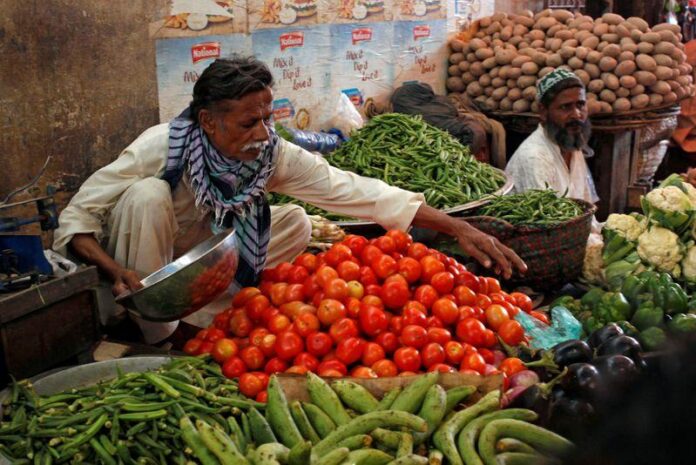ISLAMABAD: Headline inflation in Pakistan fell from 9.3pc in July 2020 to 8.2pc in August, mainly due to a slight decrease in prices of essential food items, according to data provided by the Pakistan Bureau of Statistics (PBS) on Tuesday.
The decline in inflation during August was attributed to stable prices of food and perishable items. A decline of 9.8pc was recorded in the prices of perishable food items in August if the same is compared with the prices of July 2020.
The PBS data showed that chicken price dipped by 36.45pc in August from the previous month, while that of tomatoes lowered by 31.83pc, eggs 1.33pc, and fresh fruits 23.15pc, respectively. All varieties of pulses also posted a decline in retail price during the month under review.
But contrary to these, wheat prices surged by 11.95pc during the period under review; wheat flour rose 5.44pc and wheat products 6.85pc. Similarly, an increase of 13.53pc was noted in the retail price of sugar across the country.
The government has allowed import of wheat and sugar to arrest the shortfall in the domestic market.
As per the PBS data, there was a 2.9pc jump in the cost of transportation as economic activities increased in August after easing of lockdown in the country.
In urban areas, food items that saw an increase in prices during August included sugar (+13.53pc), wheat (+11.95pc), onions (+10.4pc), bakery and confectionary (+6.65pc), potatoes (+5.85pc), wheat flour (+5.44pc), beans (+5.01pc), fresh milk (+4.79pc), spices (+2.81pc), and rice (+0.31pc).
The items whose prices declined in urban areas included chicken (-36.45pc), tomatoes (-31.83pc), fresh fruits (-23.15pc), pulse moong (-6.5pc), vegetables (-2.78pc), pulse mash (-2.28pc), fish (-1.87pc), whole gram (-1.78pc), eggs (-1.33pc), pulse gram (-1.29pc), besan (-1.21pc), pulse masoor (-0.98pc), vegetable ghee (-0.86pc) and cooking oil (-0.59pc).
Similarly, in rural areas, price increase was seen in sugar (+13.31pc), wheat (+7.89pc), wheat flour (+4.36pc), potatoes (+3.73pc), sweetmeat (+2.63pc), fresh milk (+1.79pc), rice (+1.76pc), eggs (+1.43pc), cooked food (+0.91pc) and meat (+0.74pc).
On the other hand, drag in price levels came from tomatoes (-33.94pc), chicken (-31.9pc), fresh fruits (-25.42pc), pulse moong (-9.66pc), vegetables (-8.66pc), pulse mash (-4.55pc), spices (-3.51pc), pulse gram (-3.41pc), whole gram (-2.47pc), besan (-1.94pc), pulse masoor (-1.57pc) and onions (-0.4pc).
Meanwhile, non-food inflation in urban centres was recorded at 4.8pc year-on-year and 1.5pc month-on-month, whereas in rural areas, it rose by 6.8pc and 1.5pc, respectively. The increase in non-food inflation was mainly driven by a rise in oil prices in August.
The urban consumer price index covers 35 cities and 356 items, while the rural one tracks 27 centres and 244 products. The former grew by 7.1pc year-on-year in August whereas the latter jumped by 9.9pc.
Core inflation in urban areas was 5.6pc in August as against 5.3pc the previous month. In rural areas, the corresponding increase was 7.6pc.
Average inflation measured by the sensitive price index eased to 11.7pc during August from 13.7pc during the previous month, while the wholesale price index slightly up to 3.3pc during the month under review from 3.2pc in the previous month.
The State Bank of Pakistan (SBP) determines the key policy rate currently at 7pc — based on the core inflation rate. The SBP has reduced the rate by a cumulative 625 basis points since March 17 to combat uncertainty amid growing coronavirus outbreak.
























